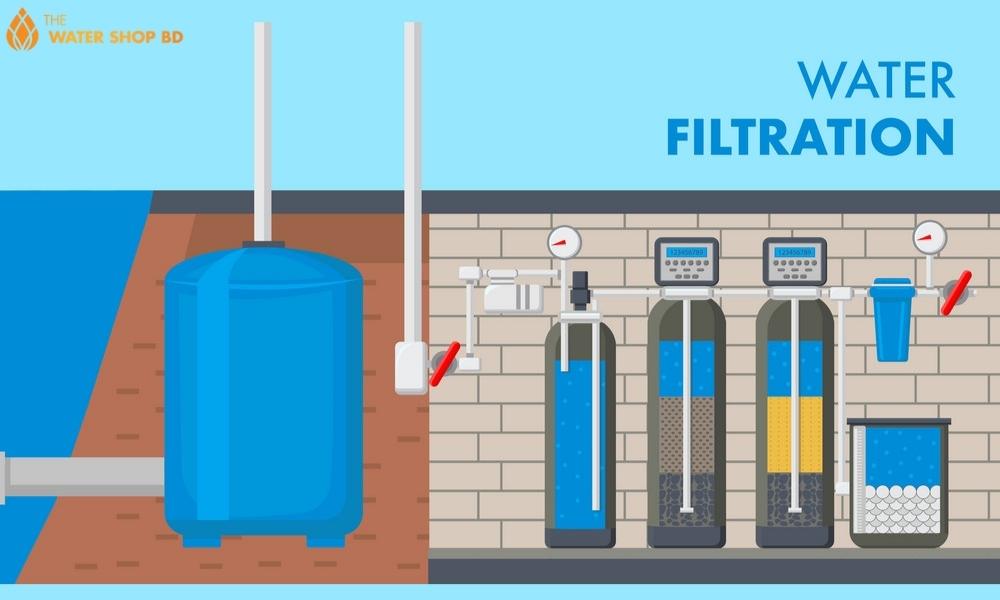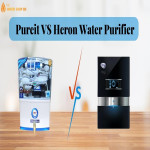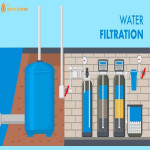Do you have concerns about the quality of the drinking water you receive at home? If studies demonstrate that drinking water can include a variety of pollutants, heavy metals, and microorganisms, you should invest in a water filter system to put your fears to rest.
There are various alternatives accessible once you've opted to entrust your good health to a water filter. The market is swamped with so many different kinds of water filters from various companies that use various filtration technologies that the thought of purchasing one might be overwhelming.
Here are 5 things you should look for in a water filter.
5 Things to look for in a water filter
Contamination removal

The main objective of installing a water filtration system is to remove toxins from tap water and provide clean water. Water delivered to your home may include a variety of pollutants that might be harmful to your health.
Biological contaminants such as bacteria, cysts, and other microparasites can enter your body through contaminated water.
Furthermore, multiple studies have found that domestic water may include dangerous chemical contaminants associated with high cholesterol, obesity, hormone suppression, and other health problems.
Furthermore, heavy elements such as arsenic and lead may be present in tap water, which can cause cancer.
So, how do you choose a filter? Have your water tested in a professional lab to see what pollutants are present, and then determine which filter is best for you.
The majority of the filters remove approximately 40 pollutants, but some can filter up to 60 and others just about 25. If your water includes a higher level of impurities, invest in a filter that will remove them.
Organic chemicals, chlorine, THMs, and most parasites may be removed from water using activated carbon filters; however, nitrates, sulfates, arsenic, and heavy metals need reverse osmosis or UV filter systems.
The rate of filtration

When shopping for a filter, most consumers are unlikely to be concerned with the maximum daily filtering rate. A prudent buyer, on the other hand, should pay attention to it.
The amount of filtered water a filter can generate per day is known as the maximum filtration rate. If your daily water use exceeds the maximum gallons of water generated by your filter, it is not a suitable filter for you.
The highest filtration rate of various filters on the market varies greatly. It's critical to find one that fits or slightly surpasses your needs. On the other hand, because they are typically more expensive, you should avoid buying filters that filter considerably more water than you really drink.
So first figure out how much-filtered water you need daily and then choose your filter accordingly.
Water's quality

Your filter should do more than simply eliminate impurities; it should also enhance the water's overall quality. This involves eliminating unpleasant taste and odor while keeping optimum pH balance while conserving natural minerals that are beneficial to your health.
Reverse osmosis filters may appear to be the final solution in your search for healthy water, but this is not always the case. While it removes some undesirable contaminants, it also removes beneficial minerals.
In reality, it depletes our bodies of various natural minerals such as calcium, magnesium, salt, iron, fluoride, and others.
GI disorders, bone density concerns, joint problems, and cardiovascular illness can all be caused by a lack of these minerals. Mineral deficiency also causes water to taste bland and increases acidity.
If your water does not contain particularly hazardous chemicals in a significant amount, active carbon filters that conserve minerals may be a good option. You may also acquire filters with remineralization components, which add important minerals to your water after it has been filtered.
The cost of installation and operation

The sort of water filter you purchase will be influenced by your budget. Many factors influence the price of a filter, including the number of stages used to purify water, filtering rate, and storage capacity. Similarly, a filter with a remineralization cartridge will be more expensive.
Aside from the money you pay upfront, there are other expenses associated with having a filter. You'll need to replace your cartridges, so figure out how much they'll cost. Calculate how much power your filter consumes. Keep in mind that filters that look pricey at first may end up being less expensive in the long term.
To enjoy good water, you don't need the most costly and complicated system. Determine what impurities you need to remove from your tap water and how much water you consume daily to see what works best for you.
Don't waste your hard-earned cash on things you don't require. Also, if the case requires it, don't be afraid to go a bit over budget.
Ease of use and upkeep

Water filter cartridges usually need to be replaced after a certain amount of time. You'll need to study your water filter manual to figure out how often you should replace your cartridges and make sure you do it on time. Filters that require regular cartridge replacement should be avoided.
Water filters have varying maintenance needs depending on their kind. All filters require some amount of monitoring, but more complicated systems require more of your time and money.
For example, a 6 phase reverse osmosis filter may necessitate the replacement of multiple cartridges at different times.
Pretreatment of the feed water is required in such filters to ensure the filter's longevity.
If the supply of water is hard, a water softener is required to avoid severe membrane scaling caused by magnesium and calcium deposits in the filter components.
You must take adequate care of your filter to guarantee that it continues to function properly. It's critical to keep your filter in good operating order if you want to drink clean, nutritious water.
So here are the 5 things you need to look for in a water filter. Obtaining a water filter is a significant undertaking since your health is at stake. As a result, conducting extensive study before installing one is required.
In your hunt for the right water filter, failing to examine additional variables other than the core function of making water clean and healthy may cause you to regret your decision later.











